Packaging that cares for our planet!

With recent research* demonstrating that 47% of businesses have prioritised packaging innovation as part of net zero targets; sustainable packaging solutions are in high demand. Key Irish retailers have been at the forefront of this movement for several years now and are rightfully proud of the changes they have made so far to improve their carbon footprint. Read on to find out more about the latest innovation taking place within the packaging sector
26 May 2023
Ireland produced more than 1 million tonnes of packaging waste in 2020. As the production, transport and management of packaging waste uses up the earth’s finite resources and causes carbon emissions, this leaves us with no choice but to reduce the overall amount of waste we generate. Repak Plastic Pledge Members are working towards this, and in 2021, they achieved an average plastic packaging recycling rate at their premises of 69% and diverted a total of 26,000 tonnes of plastic packaging waste from the Irish market. Plastic Pledge Members also reduced their plastic packaging by an average of 25% – removing or replacing over 600 million single use plastic items.
The 2023 SME Food Barometer published by Love Irish Food and PwC, also showed the extent to which sustainability measures are at the forefront of Irish food businesses. Over half (57%) reported to have embedded sustainability into their overall business strategy. The top areas for investment to deliver better sustainability outcomes are energy consumption (45%), packaging reduction (37%) and plastics reduction (37%).
A large majority (72%) reported that embedding sustainability has tangible benefits with 45% believing it is the right thing to do from a societal viewpoint. The benefits include: it leads to greater brand trust (42%); and enhanced reputation (37%). It is clear that the key areas of focus (i.e., energy, packaging and plastics) have environmental benefits but they also help the business manage costs in a period of high inflation.
Despite commitments to sustainability efforts, the SME Food Barometer showed only 15% of companies have made a carbon-neutral commitment in the last year. However, half are working towards making this commitment with the majority (73%) having pledged to be carbon neutral by 2030.
Meanwhile, a recent survey conducted by Smurfit Kappa, in partnership with the Financial Times, revealed that sustainability continues to play a pivotal role in the strategy and planning of senior business leaders across Europe and the Americas. ‘The Transparency Edge’, which was conducted among 440 senior and executive business leaders across 11 major economies, showed that despite half of businesses having set ambitious plans to achieve net zero, only 11% of respondents believe they have a robust and actionable sustainability strategy.
More than half (61%) that responded state that sustainability is changing the way they measure financial performance. Many of them have started to build sustainability into their leaders’ performance assessments and incentives. This underscores the impact that sustainability is already having across businesses. Almost half of businesses (47%) have prioritised packaging innovation as a way to meet their own net zero targets.
While 63% of businesses believe they have complete transparency on how and why sustainability decisions are made, nearly a third (29%) claim their company’s actions rarely align with the sustainability ambitions they communicate to stakeholders. The gap between stated ambition and action continues to expose businesses to the risk of accusations of greenwashing.
The research highlighted the importance of transparency, underscoring how it is central to building confidence among consumers, investors and critical stakeholders. Those businesses deemed to be ‘Sustainability Leaders’ (11%) are ahead of the pack when it comes to four key aspects of transparency: “Ensuring alignment between sustainable action and ambition”, “Measuring progress on net zero initiatives”, “Communicating effectively to build trust” and “Independent assurance of sustainability performance”.
Conversely, a surprising 17% of businesses have yet to develop a strategy, whilst 33% are only in the process of developing a strategy.
“This research highlights how, despite significant ambition across the corporate world, it is often not matched with action, measurement and assurance. By putting these together you can have a compelling sustainability story backed up with third party assured public disclosures, engaging your stakeholders and removing any greenwashing risk,” said Garrett Quinn, chief sustainability officer at Smurfit Kappa.
The research also highlighted the importance of ensuring consumers are informed, as they increasingly demand clear, reliable information from brands in order to make better-informed decisions. The three most effective ways to increase transparency among consumers are impact reporting (47%), clearly labelled packaging (43%) and annual sustainability reporting (40%).
*(Source: ‘The Transparency Edge’, a study by Smurfit Kappa, in partnership with the Financial Times, conducted among 440 senior and executive business leaders across 11 major economies)
Unwavering focus on sustainable solutions
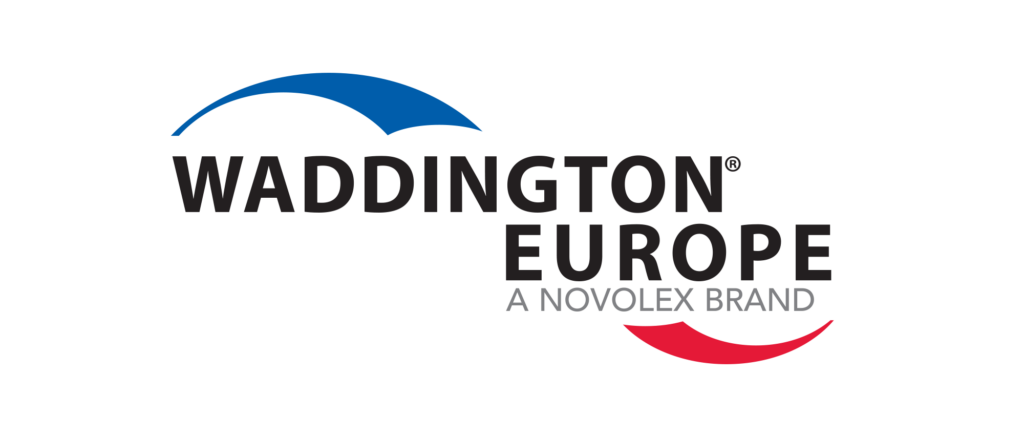
Waddington Europe, a Novolex brand, is a premier European food packaging specialist. With a key manufacturing site in Arklow, Waddington Europe is a leading supplier of food packaging for a variety of sectors, including bakery, dairy, produce, food-to-go, desserts, protein, pet food and a lot more.
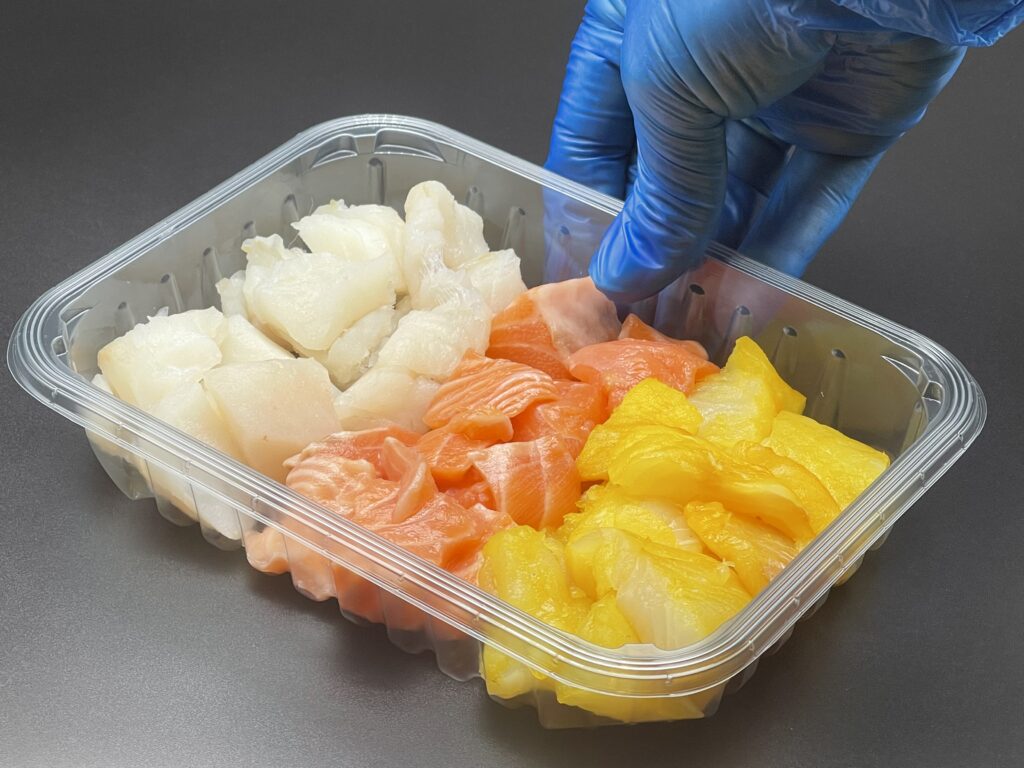
Piranha is a mono material modified atmospheric pack (MAP) rPET tray that seals the film lid for greasy contents using a series of raised teeth
Waddington Europe Arklow helps its customers meet their own environmental commitments by offering high-recycled content and lower carbon footprint products. The company works to drive sustainability into its food packaging products by designing for recyclability and continually working to reduce the amount of material used in its products through the use of post-consumer waste materials and downgauging, respectively.
For example, Waddington Europe Arklow manufactures Eco Blend Pura, a premium range of 100% rPET (recycled PET) trays that are also recyclable. Made entirely from food-grade recycled post-consumer plastic waste, these products demonstrate circularity in action, keeping plastic out of landfills and turning discarded bottles, pots and tubs into new food trays. By teaming up with Shabra, Ireland’s leading recycler and reprocessor of post-consumer waste, Waddington Europe has access to a local supply of 100% recycled plastic.
The company also recently launched Piranha, a mono material modified atmospheric pack (MAP) rPET tray that seals the film lid for greasy contents like meat, fish and poultry using a series of raised teeth. That eliminates the need to apply a layer of polyethylene or adhesive, which traditionally can cause contamination in the recycling stream.
Waddington Europe is also proud to have achieved Zero Waste to Landfill certification across all its production sites.
Through exceptional service, execution, and an unwavering focus on sustainable and innovative solutions, Waddington Europe strives to make a difference to its customers, communities and planet every day. For more information, visit www.waddingtoneurope.com.
Shaping wellbeing for the world
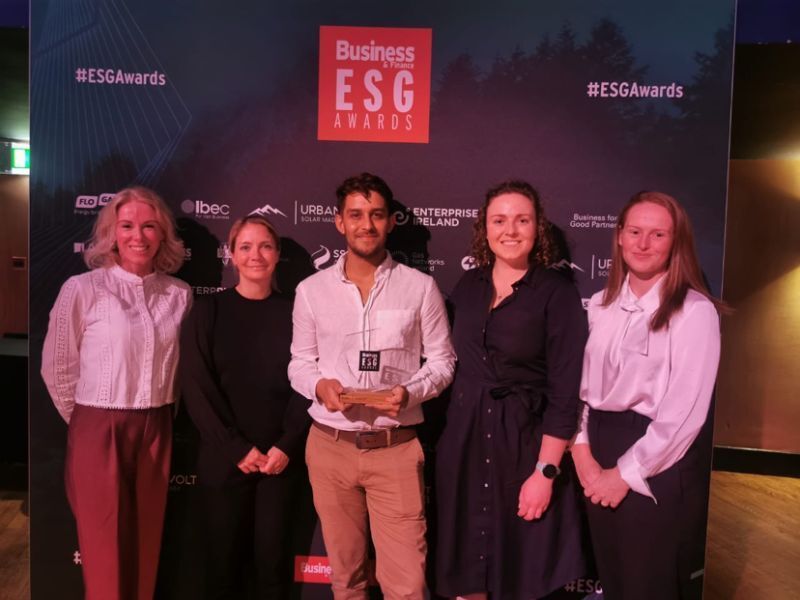
Fyffes’ corporate affairs team recently received the ESG Team Award from Business & Finance Media Group
At Fyffes, the company’s vision is to shape wellbeing for the world, not only through the delicious and nutritious produce Fyffes supplies to consumers, but in the way its team does business. Fyffes constantly strives to improve the welfare of its own people through the highest standards of ethical conduct and the company builds and maintains long-term supplier, stakeholder and customer relationships. Central to achieving Fyffes’ vision is pursuing best practice in sustainability and so it was great to see the company’s corporate affairs team receive the ESG Team Award from Business & Finance Media Group.
As a team, Fyffes has implemented and integrated sustainable practices in all areas of its operation to respond to climate change and ensure that natural resources are efficiently managed, conserved and enhanced for future generations.
Fyffes has done this by increasing efficiency in use of inputs and outputs, including implementation of sustainable alternatives. Fyffes protects, restores, or enhances natural soil fertility. The company reduces water use, prevents water waste and enhances wastewater quality. The company reduces GHG emissions throughout the supply chain and currently has the most ambitious target in the industry to reduce greenhouse gases by 25% by 2025.
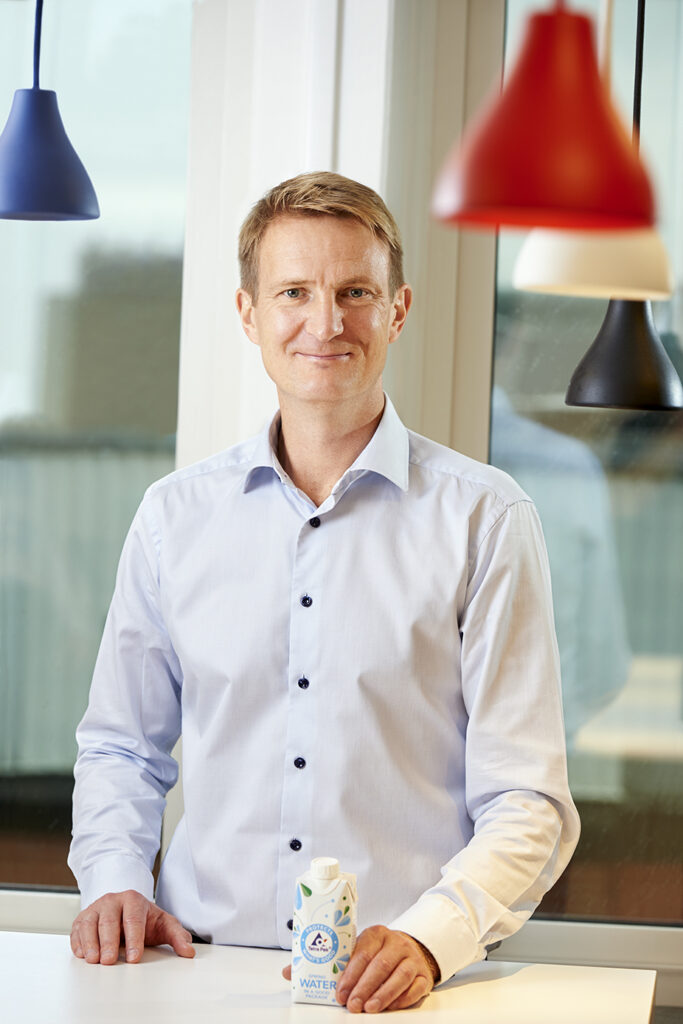
Alex Henriksen
How the packaging industry can contribute to a circular economy
Alex Henriksen, managing director, North Europe, Tetra Pak, shares his reflections on industry’s vital role
A sustainability agenda that considers not just recycling and reuse, but also the climate impact of raw materials and manufacturing is essential if we are to achieve a circular economy.
Using raw materials effectively
Understanding how raw materials are sourced and their whole-life impact on the environment is critical to building a circular economy. The industry must find alternatives to fossil fuel-based materials and increase the use of renewable materials in order to ensure circularity in the packaging value chain.
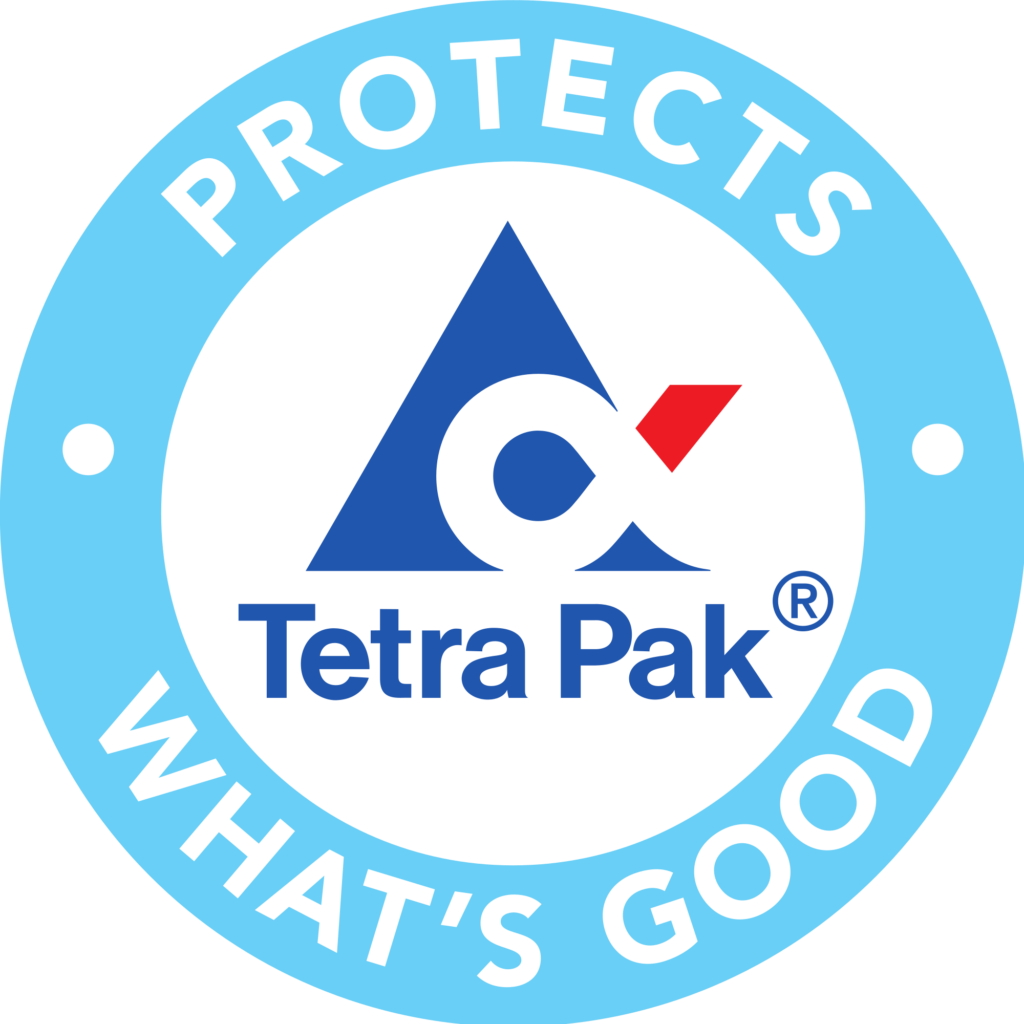 At Tetra Pak, the team are striving to create the most sustainable package possible. They have developed the Tetra Rex plant-based carton, which is Forest Stewardship Council (FSC) certified, made entirely of paperboard from responsibly managed forests and other controlled sources.
At Tetra Pak, the team are striving to create the most sustainable package possible. They have developed the Tetra Rex plant-based carton, which is Forest Stewardship Council (FSC) certified, made entirely of paperboard from responsibly managed forests and other controlled sources.
As consumers push for more sustainable options, the packaging industry has a significant role to play in providing options for businesses to meet these expectations. Innovation stemming from choosing the right raw materials and using them in a deliberate and thoughtful way is a clear way forward in this regard.
Transparency and collaboration go hand in hand
In addition to innovation in packaging, we must also prioritise education and transparency across the value chain to achieve a circular economy. Educating consumers on the differences between packaging, as well as how they can be recycled, means they can make an informed decision. We must also have the right infrastructure in place, with the ability to sort different types of packaging to effectively recycle them. This can only be achieved by working closely with policy makers and collaborating across the industry.
Transparency around these issues will build people’s confidence in using recyclable packaging while also increasing trust in our industry and businesses.
Cultivating the right mindset
Finally, we need to work together as an industry to address consumer concerns about recyclability and increase carton recycling rates. This is why we are investing in consumer education campaigns and working to debunk common misconceptions about carton recycling, empowering consumers to make informed and positive choices for themselves and the planet.
Incentivised charging for commercial waste
From 1 July 2023, big changes are on the way for Irish businesses, as incentivised charging will come into effect for commercial waste collection. A staggering 70% of disposed commercial waste is missing out on being recycled. The knock-on effect means that businesses are paying more for waste disposal than they should be, failing to avail of the lowered costs associated with segregation. In a bid to tackle this, businesses will soon have an incentivised way to get rid of rubbish in a more environmentally friendly and cost-effective way.
Similar to all homes across Ireland since 2017, businesses will be provided with three designated bins to separate waste into. These will cover food waste, recycling and general waste. It’s a welcome incentive, as the move will also increase Ireland’s chance at reaching its EU recycling targets for 2025 and 2030. The targets are ambitious, requiring a united effort from Irish businesses, along with investments in local recycling infrastructure.
Particularly in the area of plastic recycling, Ireland is currently facing its greatest challenge. Repak estimates that our current recycling rate is 33% for 2022, meaning there’s a projected shortfall of 17% ahead of 2025’s target, and a worrying 22% gap from the 2030 aim.
Repak helps businesses trying to navigate the requirements they need from waste contractors to meet recycling targets. If waste segregation is proving difficult, waste contractors can be consulted for best practice methods and additional assistance. Increased recycling is a win-win for all, as improved recycling helps the environment and reduces refuse costs for businesses.
For a list of Repak-approved waste contractors and to find out what your business can do to improve its recycling process, visit www.repak.ie.
Ballygowan mineral water to be produced using 100% renewable electricity harnessed from wind energy
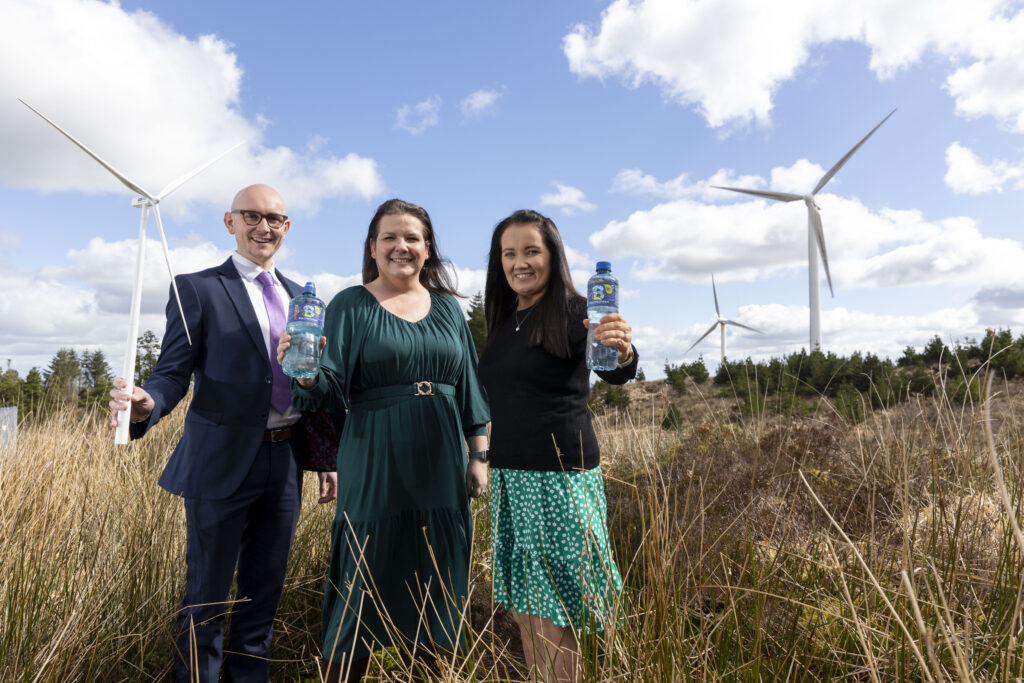
Charlie Bornemann, key account executive at Flogas Enterprise; Sian Young, director of Sustainable Business at Britvic Ireland; and Orlagh Geraghty, head of Planet at Britvic Ireland, pictured at the announcement of Britvic Ireland’s €2.5 million Corporate Power Purchase Agreement (CPPA) with Flogas Enterprise at Sonnagh Old Wind Farm in Co. Galway (Photo credit: Fennell Photography)
Britvic Ireland and Flogas Enterprise have announced a new Customer Corporate Power Purchase Agreement (CPPA) to the value of €2.5million, that will ensure that Ballygowan, Ireland’s iconic water brand, is produced using 100% renewable electricity harnessed from wind energy.
Britvic is the first soft drinks brand in Ireland to sign a CPPA. It will allow the company to purchase renewable electricity from the Sonnagh Old Wind Farm in Moneylea Co. Galway, producing enough electricity on an annual basis to power their production facility in Newcastle West Co. Limerick and 75% of the company’s total electricity requirements. Newcastle West is the home of Ballygowan Natural Mineral Water and has the highest level of renewable energy use by any Britvic factory worldwide.
Britvic Ireland has already achieved a 92% reduction in direct emissions across its sites from 2017 to 2022, and the CPPA is reflective of an ever-increasing focus on sustainability at the company across operations and at executive level. Britvic Ireland has recently appointed Sian Young as director of Sustainable Business on the Irish Executive Team, and Orlagh Geraghty as head of Planet, putting sustainability at the heart of the business’ decision-making.
“Ballygowan, Ireland’s iconic water brand, has a long history of harnessing the best of Ireland’s natural resources to deliver sustainable, locally produced, Irish natural mineral water,” said Sian Young, director of Sustainable Business at Britvic Ireland.
“This new Corporate Power Purchase Agreement with Flogas Enterprise, valued at €2.5 million, will produce renewable electricity for our production facility in Newcastle West and is a significant investment in our long-term strategy to ensure 100% sustainability across Britvic Ireland’s business operations,” she added.
“At Flogas Enterprise, one of our top priorities is to support businesses on their path to sustainability,” said Charlie Bornemann, key account executive at Flogas Enterprise. “We have a proven track record of delivering great value and high-quality energy solutions which help organisations become more environmentally conscious, and we are very excited to work with Britvic Ireland and support them to cut their energy carbon emissions through this CPPA.”
Part of DCC plc, Flogas Enterprise is the division of the Flogas group that works with industrial and commercial customers and renewable production facilities and is the only electricity supplier in the Irish market bringing CPPA options to customers. This is the latest example of a DCC business leading their customers to net zero with renewable energy.



 Print
Print
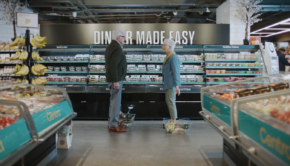
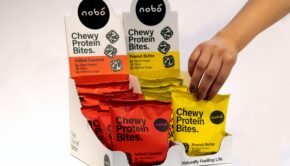
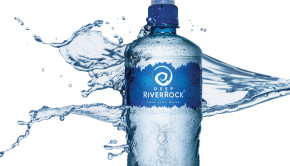
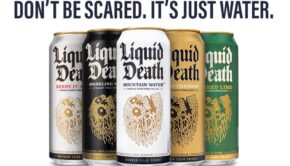


Fans 0
Followers